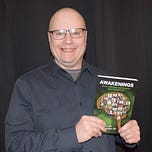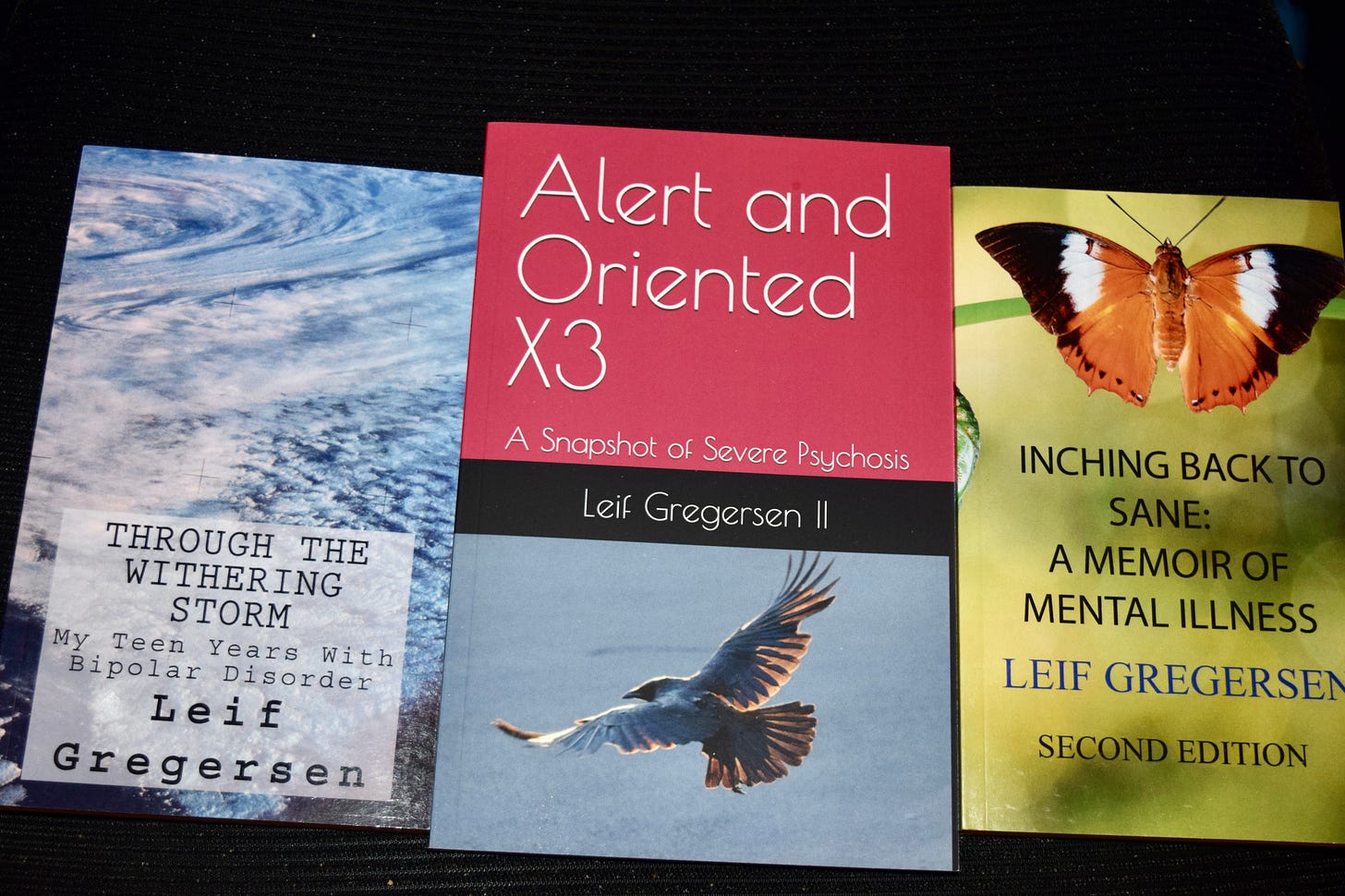Hello my wonderful audience members. Today I thought I would make a podcast right after waking up. I just did an informal talk in this one where I discuss psychosis and what I went through, from early on in school to the present day. Something I wanted to get across that I feel is critically important is that parents of teenage children really need to keep a close eye on the mental state of their young ones. What I feel is the most important reason for this is the horrible tragedy that occurs when a young person seems fine and happy and healthy, but deep down are very troubled and they end up dying by suicide. It is critical for parents to understand that they are an essential part of their child’s recovery. In my years of experience with mental health, I have found the people with at least one caregiver are the ones who recover, and do the best.
Keep a close eye on things like depression or self-harming behaviour. Family counselling and individual therapy can be critical in a young person’s development, in most cases, but especially when a family member has a severe mental illness. Things can boil up with a young person, and psychosis, or a psychotic break can happen out of nowhere. The key takeaway here is, the earlier symptoms can be treated, the better the outcomes for the patient. In Edmonton, we have an organization called EEPIC, which stands for Edmonton Early Psychosis Intervention Clinic which partners with schools, law enforcement, and other organizations to do their best to treat psychosis as early as possible. Look for an organization in your area that can be critical in helping a loved one.
In the podcast today, I mention that my two months in the psychiatric hospital may have helped deal with my mental health symptoms, but it left the rest of my life devastated. I lost my car, my job, my position in school, many friends, and after I went through all this I blamed the medication I was on for a lot of it and stopped taking it, which was only a recipe to create more chaos in my life when I became ill again.
The early part of psychosis is often called the prodromal phase. During this time, the person may show no signs of psychosis, but other things like clinical depression or mixed mood states. Just to be clear, psychosis is when a person has delusional thoughts, which are fixed, false beliefs that may be religious or grandiose. They will also have hallucinations, which are false sensory inputs that often reinforce the false ideas, and can manifest themselves in any of the five senses. Paranoia often steps in just to make the whole situation even more troubling and confusing. There are other symptoms of course, like social withdrawal, poor hygiene, loss of ambition, and loss of interest in life. The prodromal phase is the early stages of illnesses like schizophrenia. If a young person can be treated at this stage, it may head off a worse situation later, but also it teaches the young person how to reach out for help. Critical to get across to your loved one is how street drugs such as methamphetamine and cannabis can trigger a psychosis and make your child’s life even more difficult.
If you have a loved one with a serious mental illness, learn all you can on how to help them deal with it. There are so many great books to read, including the three I have written, “Through the Withering Storm” “Inching Back to Sane” and “Alert and Oriented x3” which can be found on amazon.
Be patient and forgiving. You may not want this person to live with you, which is completely understandable, but don’t leave them out in the cold. Do all you can, use any motivation that works to encourage your child to take medications, continue treatment, and to either train for or work at a job where they can feel valued and feel like a contributing member of society.
Remember that 10% of people with schizophrenia and 15% of people with bipolar disorder will take their own lives. Many of these deaths are believed to be caused by isolation and poor mental health care. It is important to note these figures are deaths, not just attempts. It is incredibly difficult to live with a mental illness but there is so much help out there.
Dr. Xavier Amador, in his book, “I’m not sick, I don’t need help!” discusses his relationship with his brother who lived with schizophrenia and didn’t accept treatment at first. Watch Dr. Amador speak about his method below.
Dr. Amador believes in using a method he calls LEAP, which stands for Listen, Empathize, Agree, and Partner. This means you approach the ill person as an equal, and build trust. Building trust and a relationship is the best way to help someone admit they need help and take medications.















Share this post